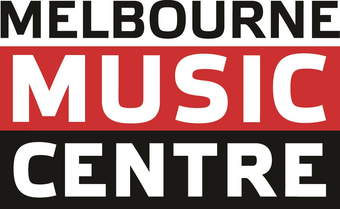When it comes to learning the guitar, hygiene is not something that gets discussed often, but it is a very important part of guitar playing.
Here are a few tips by our resident guitar expert Choo Packer to help keep your guitar happy and healthy.
WASH YOUR HANDS BEFORE PLAYING
Just like your mother told you before you eat, after you have gone to the bathroom, when you come in from the garden or have been working on your car ‘WASH YOUR HANDS’. The same goes for playing the guitar. I have seen guitars covered in so much grime and gunk that I wouldn’t pick them up without gloves and a face mask. Not only does it look unsightly and pose a health risk, there is nothing worse for a guitarist than playing a guitar with a grimy, sticky neck. It will slow down your fingers, ruin your strings as well as affect your tuning and tone.
GRAB A RAG
There are many commercial cleaning cloths on the market specifically designed for guitar. These are of a non-abrasguitarive design so the guitar’s finish will not be marked or adversely affected. Any similar domestic cloth will also do the trick. Before and after playing the guitar, a good habit to get into is to give your guitar a quick once over to remove dust, sweat and fingerprints.
There are also a huge range of polishes and cleaning solutions available for the body of the guitar. I suggest you do some quick research to find the most suitable for your instrument. Don’t use household furniture polishes as these will leave a greasy coating and may even stain open pore finishes. If in doubt, call or visit Melbourne Music Centre to find out the best product for your needs. Otherwise you can check out the following links to our online store:
STRINGS
Always pay close attention to the fingerboard and strings as this is where most of the gunk will be deposited. The more you play your guitar the more dirt, sweat and oils build up on it. The acid in sweat and the oils from your fingers corrode the strings causing them to lose their bright tone. Get the cloth under the individual strings and run it up and down their entire length. This procedure will remove the grime and greatly increase the life span of your strings. I have seen brand new strings left after a sweaty session turn to dull crusty ones by the very next day. So always make sure you clean your strings after playing.
There are many good commercial products available to aid string cleaning, most of these will be alcohol-based and help with the removal of build-up. You can get Isopropyl Alcohol from a chemist and make up your own solution. Use sparingly and avoid getting this on the fingerboard and guitar body.
FINGERBOARD
Fingerboards are prone to drying out over time and can become discoloured, brittle and uncomfortable to play. Lemon oil and other products can be used to regenerate the wood. Be careful not to use too much as the fingerboard will become greasy to the touch and also coat the strings.
DON’T FORGET THE HEADSTOCK
I have seen many otherwise clean guitars have dust and muck accumulate at the headstock and tuners. As this area has strings and tuning posts it can be a bit fiddly keeping it clean, but it’s worth spending the extra time because it will keep your tuners working smoothly and will improve the overall appearance of your guitar. If you are not going to be playing the guitar (especially a travellers guitar) for some time, it is best to put it back in its case or bag in order to keep it clean and safe.
Over time you will develop your own guitar cleaning routine, and by following some of these basic guidelines your guitar will feel better, sound better and retain its value
.

